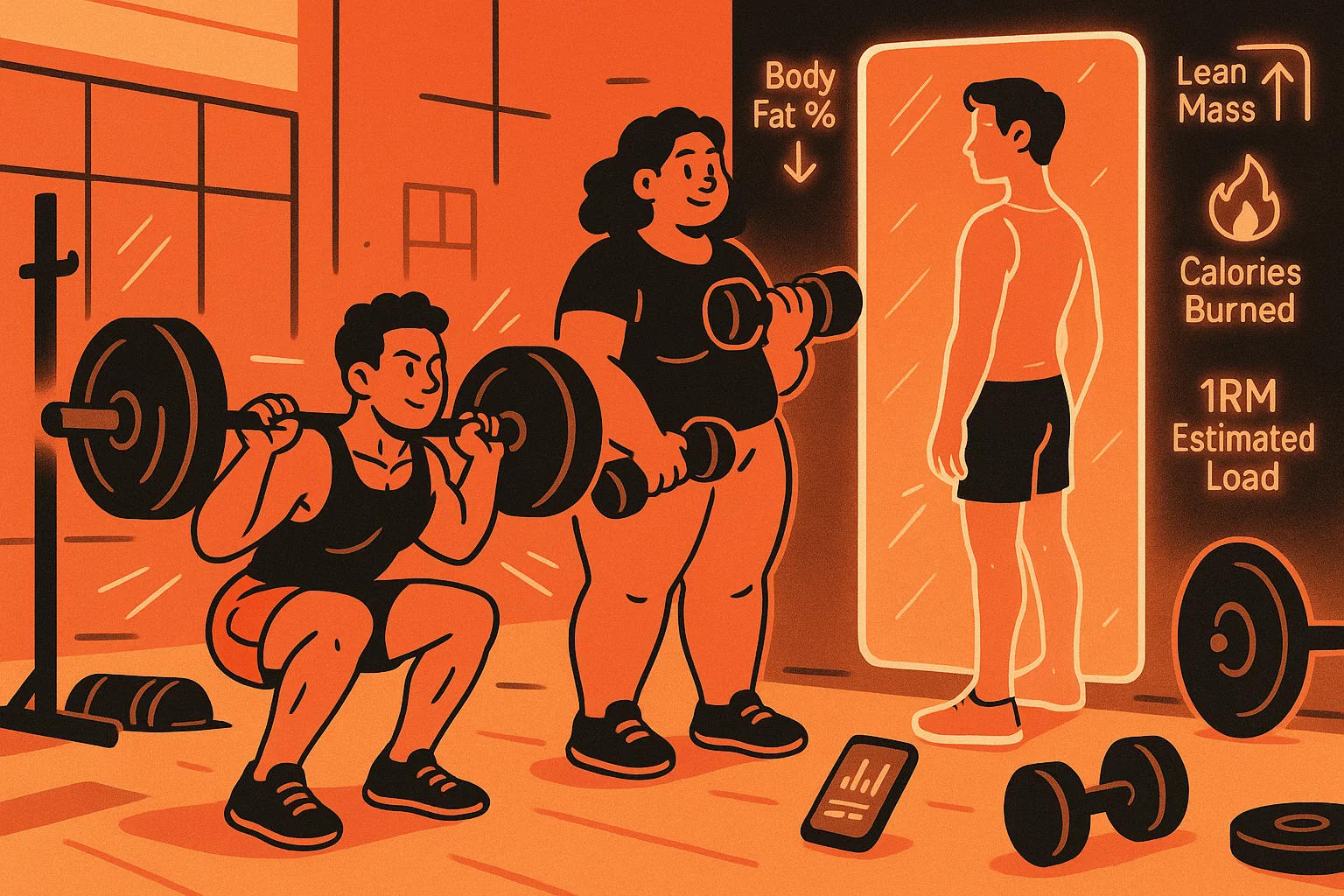Sport is movement with intention. It’s that early-morning run when the world is still quiet, the last rep that burns but builds, the rhythm of breath and effort when everything else fades away. Sport isn’t just about medals or competition — it’s about momentum. It teaches consistency, discipline, and the power of showing up, even on days when motivation runs low. Whether you’re training for your first 10K, fine-tuning your gym routine, or simply trying to feel stronger and more alive, sport is a tool for growth — physical, mental, and emotional. It sharpens focus, fuels confidence, and offers a path to progress you can actually feel. And the best part? You don’t have to be a pro to train like one. Just start where you are — and let your numbers, your goals, and your grit guide the rest.
Your Performance, Your Metrics
Progress in sport isn’t one-size-fits-all. For some, it’s shaving seconds off a mile time. For others, it’s simply showing up more often, lifting heavier, or running without gasping by minute ten. No matter the goal, performance is deeply personal — and the real magic comes when you start tracking it.
That’s where metrics come in. The right data doesn’t overwhelm; it empowers. It lets you zoom in on what matters most to you — whether that’s increasing endurance, optimizing recovery, or training in the right heart rate zone to actually hit your goals faster.
Say you're a runner trying to nail negative splits on your next 10K. A simple pace calculator helps you break down each kilometer or mile so you don’t burn out early — or finish with too much left in the tank. Or maybe you’re working on aerobic efficiency. Estimating your VO₂ max gives insight into how well your body uses oxygen during intense workouts — a key marker for endurance athletes. Want to train smarter instead of just harder? A heart rate zone calculator helps you target the right intensity every session, whether you're going for a fat-burning long ride or a threshold run that pushes your limits.
You don’t need a lab or fancy gear. You just need a few numbers — your resting heart rate, max heart rate, pace, distance, or time — and a willingness to turn that data into smarter decisions. That’s what transforms workouts from “random effort” into results you can feel.

Building Endurance, One Step at a Time
Endurance doesn’t come from one heroic workout — it’s built slowly, consistently, and intelligently. Whether you’re training for a marathon, gearing up for a triathlon, or pushing through high-intensity intervals at the gym, the key is knowing when to push and when to pull back.
Smart endurance training balances intensity with recovery. One day might be a tempo run where you’re working in your aerobic threshold; the next might be a low-zone recovery ride. Tools like a heart rate zone calculator help guide this balance by showing exactly where your body is working most efficiently — or too hard to sustain.
Energy management matters, too. A calories burned calculator can show you how different activities — like running, swimming, or HIIT — drain your reserves, helping you plan meals, rest, and hydration more effectively.
Aerobic training builds long-term stamina, while anaerobic efforts build power and speed. The best endurance plans mix both, tailored to your goal. Over time, what felt impossible starts to feel routine — and that’s when real progress begins.

Strength, Fat Loss, and Body Awareness
Not all progress shows up on the scale. Strength gains, body recomposition, increased mobility — these are the wins that often fly under the radar but say so much about real transformation. Whether you’re chasing a bigger squat, trimming body fat, or just aiming to feel more powerful in your own skin, what you track matters.
Building strength isn’t just about lifting heavier weights. It’s about knowing how much load your body can handle — and when to push it. That’s where a one-rep max calculator becomes a game-changer. It helps lifters determine safe and effective training loads without maxing out every week. Whether you're doing 5x5 strength training or hypertrophy sets, this tool keeps you progressing while reducing injury risk.
For those focused on fat loss or body composition, tracking body fat percentage offers a clearer picture than weight alone. Muscle weighs more than fat, so when your weight stays the same but your body fat drops, that’s progress worth celebrating. Tools that estimate body fat — whether through measurements or methods like the U.S. Navy formula — help you stay focused on real results, not just the number on the scale.

Then there’s the middle ground — the everyday athlete balancing cardio, lifting, and nutrition. For this group, understanding how the body changes in response to different training types is crucial. Maybe you’re lifting three days a week and doing two cardio sessions. Are you gaining lean mass? Is your calorie burn enough to hit your goals? A simple tracking routine combined with smart calculators makes a huge difference.
In strength and body transformation, data isn’t about control — it’s about clarity. It empowers you to train with purpose, eat with confidence, and measure your growth far beyond the mirror.
